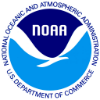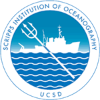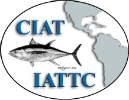Natural Mortality Workshop
Dear CAPAM M participants,
It is with an abundance of caution that we postponed the CAPAM M workshop that was scheduled for 23-27 March 2020 on the UW campus in Seattle, USA. We were looking forward to the workshop, but we do not want to risk anyone’s health and wellness given the outbreak of the COVID-19 virus in our state.
This workshop was held from 14-17 June, 2021 as a fully remote workshop. To accommodate participation across several time zones, the plan was to:
- record and post all talks, enabling participants to view and comment asynchronously as well as synchronously;
- provide a virtual social networking event on the fourth day of the workshop; and
- provide ample break time which will include opportunities for all participants to watch videos and chat live with presenters.
The daily schedule included two sessions of 4 hours each. Talks were “live” as well as “semi-live” (recordings). Sessions were held generally between 6:00am and 10:30am PDT, and again between 2:00pm and 6:30pm PDT, with some various to accomodate presenter's availability. These times were selected so we can have participants from Africa and Europe (morning PST) as well as Australasia and Asia (afternoon PST).
The CAPAM M special Issue of Fisheries Research submission deadline has been extended until 31 of March 2022 (final deadline).
Instructions on how to submit can be found at https://www.journals.elsevier.com/fisheries-research. When you submit don’t forget to identify the manuscript as belonging to “VSI Natural Mortality”.
Papers will be published immediately after acceptance and will be assembled into a virtual Special Issue after all papers are processed.
Natural Mortality: Theory, estimation and application in fishery stock assessment models
The Natural Mortality Workshop was the eighth in a series organized by CAPAM as part of its Good Practices in Stock Assessment Modeling Program for improving fishery stock assessments. The workshop was sponsored by NOAA and the University of Washington. The primary goal of the workshop was to provide advice and guidance on practices for modeling natural mortality in fishery assessments. The focus was on model specification, parameter estimation, and management consequences.


